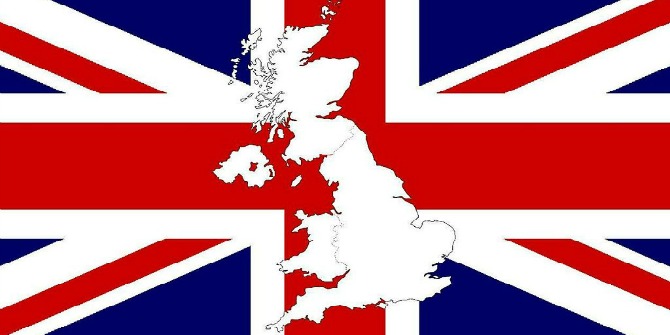
Even those campaigning to leave the European Union (EU) concede that there will be negative economic consequences in the next few years following a vote for Brexit. CEP researchers have been analysing the long- term effects of Brexit and we conclude that they will be even worse than the short-term damage.
Our best estimate is that GDP per capita will be 6.3-9.5 per cent/per year lower than it would be if we were to remain in the EU. At the mid-point of this range, this means an 8 per cent real pay cut: about four years of ‘normal’ wages gains wiped out in a deliberate act of economic self-harm. It is also likely to mean an 8 per cent cut in the real value of pensions and public services – fewer teachers, police and nurses. This will not happen overnight of course, but gradually the UK will become poorer than it would have been had it remained in the EU. If the world economy booms, we will still be better off absolutely – just less well off than we could have been. On the other hand, if the world business cycle swings dramatically down, we will be poorer than we are today.
The Brexit-induced fall in our income comes mainly from less trade with our closest European neighbours, but there is also a sizeable contribution from a downward hit to foreign investment of about 25 per cent.
Many argue that Brexit will reap benefits because of cuts in immigration. But our work shows that EU immigration has done no harm to the average wages and job chances of the UK-born. In fact, because EU migrants are better educated than the UK-born and more likely to work, they help to pay for our public services and pensions, and give a modest boost to productivity.
Some will still shrug their shoulders. One of the Leave campaign’s major donors, Arron Banks has said losing a few thousand pounds a year is a ‘a bargain basement price’ for greater sovereignty. This is easier to say if, like him, you’re worth £100 million. It’s a trickier decision for someone of more modest means. Our research shows that the pain of Brexit will not just fall on the rich, but will be shared more or less equally throughout the wealth distribution.
And will there really be great gains in democracy after a vote to leave? If we maintain good access to the single market like Norway and Switzerland, we will still have to abide by the rules and pay into the club without any vote on the regulations. It will be ‘pay and obey with no say’. That’s less democracy, not more – and these countries also have to allow free migration of EU citizens.
If we exit the single market more decisively and pay the higher trade costs, this will by necessity reduce trade, investment and incomes even more. Co-operating internationally inevitably means playing by common rules, using your voice to alter them when needed rather than racing for the exit. Being part of the global economy, being in NATO and the World Trade Organization all require some loss of sovereignty in exchange for greater wealth and security.
The EU has helped to build peace, democracy and economic growth for countries that spent most of their history locked in military conflicts. The countries of Southern Europe that joined the EU in the 1980s had been under military juntas. The countries of Eastern Europe that joined the EU in the 2000s had laboured under the boot of communism.
The EU is a far from perfect institution – it regulates too much and it has embraced austerity too uncritically. But reforming it from within is surely better than being outside and detonating an economic bombshell that will hurt the UK, Europe and the rest of the world.
There is a stark choice on 23 June that will determine our fate for generations to come. In the four decades since the last EU referendum, the UK has embraced Europe and the global economy, looked outwards and welcomed talent from all over the world. From a century of relative decline before the mid- 1970s, the UK turned a corner and started to catch up and overtake its peers in terms of average income.
Will this vote mark another inflection point where we turn our backs on dastardly foreigners and once again sink into fantasies of colonial greatness while the real economy shrivels? Or will we grasp this opportunity to affirm ourselves as full members of Europe and fearlessly chart the global economy as patriotic Brits have done throughout our history?
One way or another, we will find out later this month.
♣♣♣
Notes:
- The post gives the views of its author, not the position of LSE Business Review or the London School of Economics.
- Featured image credit: Wikimedia Commons
- Before commenting, please read our Comment Policy
 John Van Reenen is a Professor in the Department of Economics and Director of LSE’s Centre for Economic Performance (CEP). He received the European Economic Association’s Yrjö Jahnsson Award In 2009 (jointly with Fabrizio Zilibotti), as the best economist in Europe under the age of 45. In 2011 he was awarded the Arrow Prize for the best paper in the field of health economics. His research focuses on the causes and consequences of innovation, the measurement of management practices and their impact on productivity across firms and countries.
John Van Reenen is a Professor in the Department of Economics and Director of LSE’s Centre for Economic Performance (CEP). He received the European Economic Association’s Yrjö Jahnsson Award In 2009 (jointly with Fabrizio Zilibotti), as the best economist in Europe under the age of 45. In 2011 he was awarded the Arrow Prize for the best paper in the field of health economics. His research focuses on the causes and consequences of innovation, the measurement of management practices and their impact on productivity across firms and countries.





